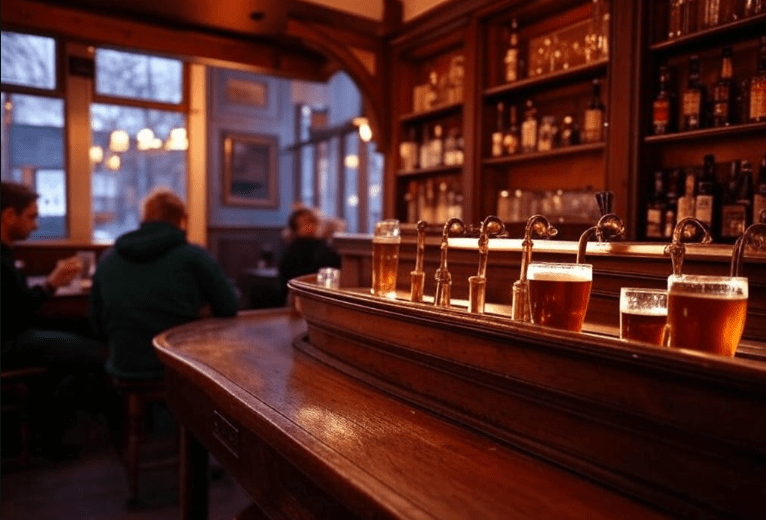A major shift in pub licensing laws is set to take place in the UK as the government prepares to revoke temporary measures that have allowed pubs and bars to serve takeaway pints since 2020.
End of Pandemic-Era Licensing Flexibility
The relaxed regulations, introduced in response to the COVID-19 lockdowns, enabled licensed premises to sell alcohol for off-site consumption without the need for an additional licence. This move was widely welcomed at the time as a lifeline for struggling hospitality venues.
The Campaign for Real Ale (CAMRA) noted that the temporary law permitted venues with a licence to sell alcohol on their premises to also sell it for takeaway purposes, as well as serve drinks in areas covered by pavement licences.
Extension Coming to an End
Though the rules were extended in 2023, they are now set to expire on 31 March 2025. Over the past few years, the government has explored potential long-term solutions, including a public consultation held between 16 May and 11 July 2024, which proposed three options to formalise or revise the current setup.
Despite the consultation, a decision has been made to revert back to the original licensing framework, meaning takeaway pints will no longer be permitted without a specific off-sales licence after the March 2025 deadline.
At the time, policing minister Chris Philp said: “It is vital that we do everything we can to support British pubs. They are a cornerstone of every community and a beating heart in our growing economy. The hospitality industry has faced a tough couple of years, and by relaxing this red tape, we will give our pubs and bars the support they need to thrive”.
British Beer and Pub Association (BBPA) chief executive Emma McClarkin added: “We wholeheartedly welcome the government’s decision to allow our pubs to continue selling takeaway pints. This policy supported our pubs through the dark days of the pandemic, and going forward it will allow them to diversify, particularly in warm and sunny weather, when people want to make the most of not only pubs, but parks and other public spaces as well”.
“The government recognises the value our industry adds to communities and high streets across the country, and we look forward to working with them to bring forward further measures, such as business rates reform, to further unlock the potential of local pubs up and down the country”, he added.
What This Means for Pubs and Patrons
The end of the temporary takeaway pint rules will bring several implications for both hospitality businesses and the public:
For Pubs and Bars:
- New Licensing Requirements: Pubs and bars will no longer be able to sell alcohol for off-site consumption unless they specifically apply for and are granted an off-sales licence. This adds an extra layer of paperwork and cost for small and independent venues.
- Loss of Flexibility: The ability to adapt quickly—especially during events, festivals, or summer months—will be reduced, impacting customer service and potential revenue streams.
- Pavement Licence Restrictions: Current provisions that allow alcohol to be served in pavement-licensed areas will be restricted. Venues may need additional approvals to continue offering outdoor drinks.
For Patrons:
- No More Takeaway Pints: Customers will no longer be able to grab a pint to-go from their local pub unless that venue has a specific off-sales licence.
- Reduced Outdoor Drinking Options: With the tightening of pavement licensing rules, alfresco drinking in public spaces may become less common.
- Higher Prices or Limited Offers: Pubs could increase prices or scale back offerings to cover the cost of new licensing requirements, potentially limiting variety and affordability.
This rule change could mark a return to more traditional pub operations, reducing the casual and flexible drinking culture that emerged during the pandemic. Both pub owners and patrons are being urged to prepare for the transition ahead of the 31 March 2025 deadline.
A BBPA spokesperson, speaking in The Sun, said: “On behalf of our members, who account for approximately 20,000 pubs across the UK, we supported options that would have made the temporary easement permanent, so we are incredibly disappointed at the Government’s decision.
We have seen no evidence that this easement has created any widespread issues since it was introduced. Instead it has helped to boost trade for pubs and therefore the economy as a whole, so this move will layer more cost and administrative burdens on pubs and local authorities”.
The spokesperson added: “We would urge the Prime Minister to reconsider the impact of this move because it will undermine their growth mission and create more red tape.”






